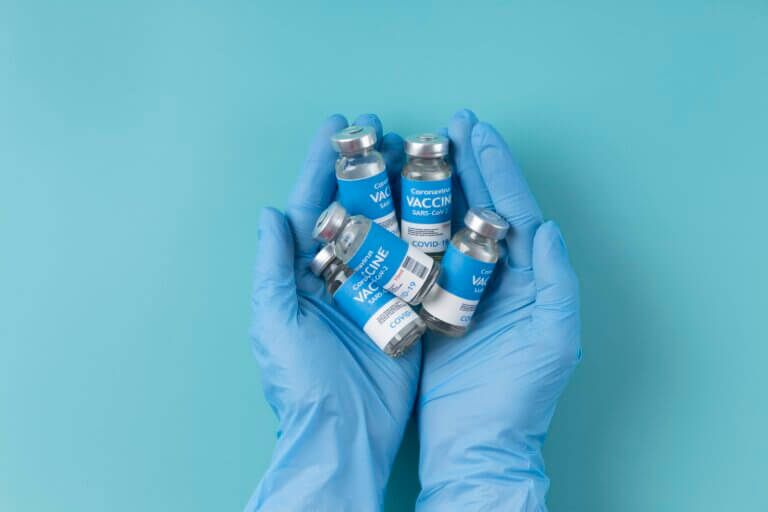In the vast world of medicine, the term “steroid” often rings familiar to many. It’s not just about muscle growth or athletic enhancements. In reality, steroids, especially corticosteroids, are invaluable for treating a myriad of medical conditions. Let’s dive into the details of these potent compounds and their suppliers.
Understanding Steroids and Corticosteroids
Steroids: More Than Just Muscle Builders
While anabolic steroids are popularly known for promoting muscle growth and improving physical appearance, their medical applications are distinct and separate. This page is about steroids that play a significant role in health and treatment, not physical enhancement.
The Mighty Corticosteroids
Often called steroids, corticosteroids are drugs that closely resemble cortisol, a hormone our adrenal glands naturally produce. Unlike anabolic steroids used for muscle growth, corticosteroids help control inflammation in the body, making them indispensable in treating various disorders and diseases.
Delving into the Uses of Corticosteroids
Corticosteroids in Injections and Creams
Whether it’s a corticosteroid injection targeting pain and inflammation or a hydrocortisone cream soothing skin irritation, the steroid use in medical treatments is vast and varied. From decreasing inflammation in joints to providing relief from certain skin conditions, these compounds have made life more bearable for many.
Prednisone, Methylprednisolone, and Prednisolone: The Notable Triad
These three, often prescribed by institutions like the Mayo Clinic, are systemic corticosteroids primarily used to treat conditions like rheumatoid arthritis, lupus, and inflammatory bowel disease. Their role in reducing inflammation and controlling the immune response is crucial for patients suffering from these ailments.
The Dos and Don’ts of Steroid Treatment
Beneficial Aspects of Steroids
Steroids can significantly help treat medical conditions, from asthma to osteoporosis. They reduce pain and stiffness, making daily life easier for patients. The benefits and risks need to be weighed, but with the correct dosage and proper monitoring, steroids often provide immense relief.
The Other Side: Possible Side Effects
All medicines come with possible side effects, and corticosteroids are no exception. From an increased risk of osteoporosis to changes in physical appearance, it’s essential to stay informed. High doses of steroids or prolonged use might amplify these effects, so always consult with a medical professional.
Navigating the World of Steroid Suppliers
Ensuring Quality and Authenticity
It’s crucial to source steroids from legitimate medical suppliers. With the plethora of options available, one must ensure that what they’re getting is genuine. From oral corticosteroids to corticosteroid injections, the quality can make a significant difference in treatment outcomes.
Risks of Anabolic Steroid Use
While the focus here is on corticosteroids, it’s essential to be aware of the risks associated with non-medical anabolic steroid use. These risks include a deepening of the voice, increased risk of prostate cancer, and alterations in physical appearance. Knowledge is power, and understanding these risks can prevent potential harm.
Conclusion
Steroids, when used appropriately, are life-changing. They offer relief from pain and inflammation, help treat conditions like rheumatoid arthritis, lupus, and much more. However, like all medications, they come with possible risks. Always consult with a medical professional, and if you’re considering steroids for treatment, ensure you’re sourcing from reputable suppliers. Your health is worth the extra diligence.
Q1: What is the primary difference between anabolic steroids and corticosteroids?
A: While both are classified as steroids, anabolic steroids are primarily used to promote muscle growth and enhance physical appearance. In contrast, corticosteroids resemble the hormone cortisol and are used to treat inflammation and a variety of medical conditions.
Q2: How are corticosteroids used in treating arthritis and rheumatoid arthritis?
A: Corticosteroids help control and reduce inflammation. In conditions like arthritis and rheumatoid arthritis, they can be taken orally, applied as creams, or injected directly into the inflamed joints to provide relief from pain and swelling.
Q3: Are there any side effects of using corticosteroids?
A: Yes, corticosteroids can have side effects, especially when used in high doses or for extended periods. Common side effects include osteoporosis, weight gain, mood swings, and changes in blood sugar levels. It’s essential to consult a doctor to understand the risks and benefits.
Q4: Can corticosteroids be used for treating inflammatory bowel diseases?
A: Yes, corticosteroids like prednisone, methylprednisolone, and prednisolone are often prescribed to treat inflammatory bowel diseases by decreasing inflammation and suppressing the body’s immune response.
Q5: What precautions should be taken when using corticosteroids?
A: Patients should always follow the dosage prescribed by their doctor, inform the doctor about other medicines they are taking (as drugs can interact), and never stop taking corticosteroids suddenly without medical advice. If on long-term corticosteroid therapy, it’s advisable to wear a medical alert bracelet.
Q6: Are corticosteroid creams safe for skin conditions?
A: Corticosteroid creams, like hydrocortisone, are often used to treat skin conditions such as eczema and psoriasis. They are generally safe when used as prescribed but can cause side effects like thinning of the skin if overused.
Q7: Can anabolic steroids be used for medical purposes?
A: Anabolic steroids can be prescribed for legitimate medical reasons, such as hormone imbalances or muscle loss due to certain diseases like the acquired immunodeficiency syndrome (AIDS). However, their non-medical use for muscle growth or athletic performance can have serious side effects.
Q8: How do corticosteroids work in the body?
A: Corticosteroids closely resemble the hormone cortisol, produced by our adrenal glands. They work by decreasing or preventing tissues from responding to inflammation. They also affect the immune system response, reducing the action of chemicals that cause inflammation.
